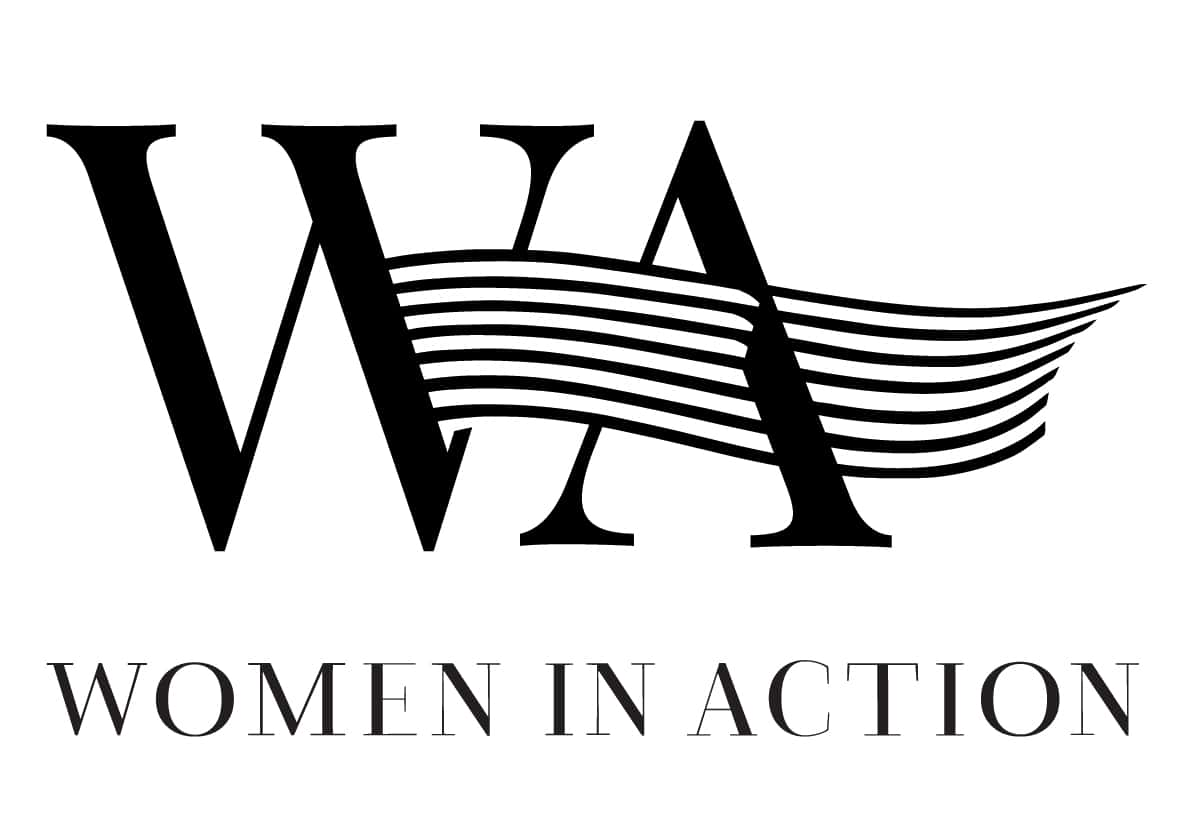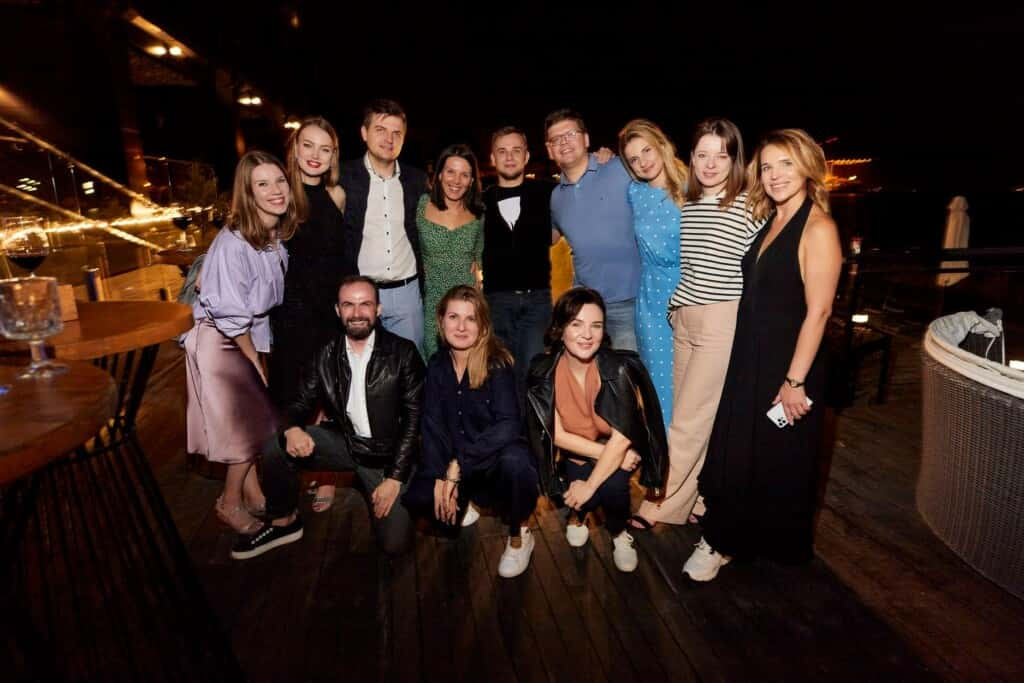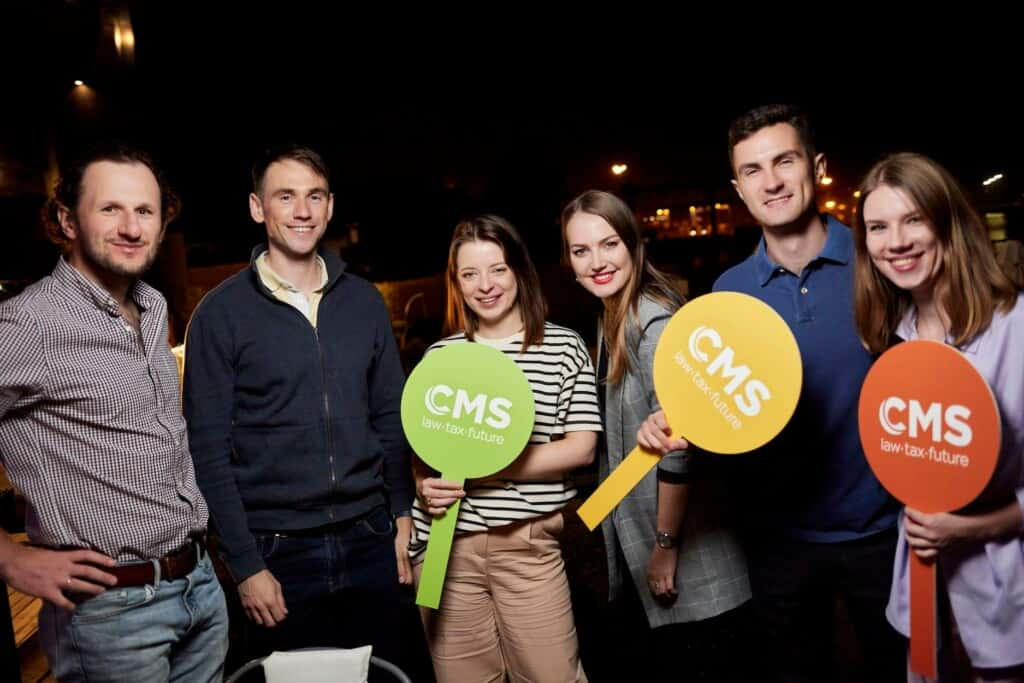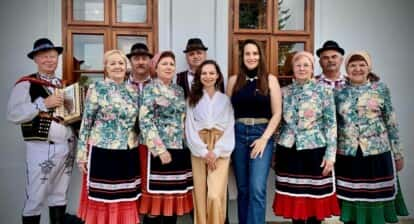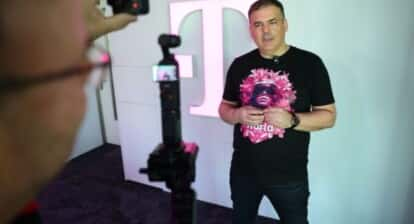“I learned how well the human body could cope,” says Tetiana Bugasova, “every instinct responding to the highly stressed situations encountered when we travelled to the Hungarian border after the war started,”
Tetiana Bugasova is a Chief Operating Officer in the Kyiv office of CMS Cameron McKenna Nabarro Olswang. Tetiana has over 25-years of experience with international companies – fifteen of which she has spent with CMS. She is a strong business and strategy development professional, skilled in general management, human resources, business process improvement, supplier negotiation, merger negotiations and change & crisis management.
CMS is the 5th largest global law firm. The Kyiv office of CMS Cameron McKenna Nabarro Olswang employs over sixty-five employees. The Ukraine team of CMS has been fully operational since the beginning of the war and is working through hubs in Budapest, Kyiv, Western Ukraine, and a few other locations.
We sat down with Tetiana to talk about leading her CMS team of lawyers into safety, dealing with the enormous stress, and working amidst the raging conflict in her home country, Ukraine.
Is it nearly impossible to imagine the level of stress people of Ukraine went through, especially in the first days of the Russian invasion. Could you please share how you managed to cope?
Let me tell you about the changing dynamics in our office. We were a team of sixty-five people. At the start of the war most of us were relocated to different locations, mainly in Budapest and Western Ukraine, with only about ten people staying in Kyiv. Now, half of the team is back in Kyiv, and the other half located in Budapest, Western Ukraine and elsewhere.
 How did your company support you during the move?
How did your company support you during the move?
The action plan was developed in coordination with the Global Business Continuity Team a few months before the war, but we didn’t expect it to be implemented. We warned staff that the situation in Ukraine was not looking good and suggested a relocation to our office in Budapest. But at that point everyone was hopeful that the situation would not escalate.
Our views started to radically change when we learnt that most of the embassies and international schools had had been evacuated. After that, we thought we must reassess and take the situation more seriously. One day before the war, my son left with his football team to Wroclaw. The following early morning on February 24, the day the war started, I had innumerable calls including from my son who was crossing the Ukrainian-Polish boarder when the team of 180 young football players, trainers and some parents who were travelling with their children had to make some tough decisions whether to cross to Poland and go back to Ukraine On that day we faced flights no longer being available, enormous traffic jams, huge queues and limited petrol available because of massive evacuations of civilians. We were now on extreme alert: bombs were falling on Kyiv and Russian troops were on the ground. It was very clear for me that if I wanted to see my son again, I had to evacuate immediately, and that I must do everything in my power to help to evacuate as many of our team as possible.
We must be forever grateful for our global company CMS, for supporting the team and continuing operations. There is an old expression: “a friend in need is a friend indeed”. That day we experienced true friendship and real connection to the global CMS family, who helped us in every way possible.
Was that the first-time employees had to move to safety?
It was the time when everybody started to become seriously worried. We had an evacuation emergency plan in place and this was the time when we had to put it into practice. We learnt that the sense of security has different meanings to different people and that being evacuated to a safer place in such difficult times can be more stressful than to stay with their families – who either don’t want or are not able to leave home. It took a lot of my time and energy to hold numerous discussions to convince people to move. We had to decide how best to transport people with buses, minibuses, and cars – which in the circumstances were challenging to drive. On average it was taking us three full days to get to the border with Hungary. We drove without breaks; I would ask passengers in cars in front of me if they could please drive my car for ten minutes so that I could sleep. I learned then how much the human body could take, what it could endure.
Most of the team moved away to safe places, but there were some people who did not want and could not leave initially. And there was a moment when we got to the point that the firm had to arrange for professional extraction services for some of our people and their families, which in retrospect sounds almost funny and rather like a thriller story, but at the time was terrifying and stressful as we watched our convoy moving through many checkpoints to a safer place.
Did you have any specific emergency evacuation plan?
We have a great team of top professionals in our IT and Global Business Continuity community that helped us to stay in contact with our people and to know their location and if they needed help. That team developed an emergency app to help us track our people and to know if they were safe. We also have the “international operational centre” team, which was set up from the time the first bomb landed in Kyiv, and worked 24/7 to help our employees, their families, and friends. The team was in charge of organising border crossings to get people out on the first day of the war, and to support those en route with information and accommodation as they escaped to safety.
So, how did the employees and the whole office manage to cope? Was there a loss of jobs, considering you mainly operate in Ukraine?
We managed to evacuate about 50 % of our people – 40 % to Hungary and the rest were in the Western part of Ukraine and Kyiv. Many people didn’t want to move, and it wasn’t easy to persuade them. Some of our people are still there now. Some clients never stopped their work, and so some practices remained behind to advise them. Clients needed to stay in touch with us and seek advice; they were in the same boat and not all of them had emergency plans in place. Speaking about our team, one of our partner candidates had their final interview for the partnership on the day the war began. The work did not pause or end. Other staff started working immediately after they reached a new location following evacuation. We of course experienced some fall in business activity from our clients, but despite that we can deploy our highly skilled lawyers and business services personnel to serve other CMS offices and projects. CMS is a truly international firm with lots of horizontal links with each other, which makes us all exceptionally skilled and used to working with different teams in different offices. This gives us an enormous opportunity to ensure that our team continues to develop as professionals.
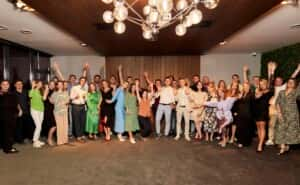 How do you, as a person, get the strength, and what are your coping mechanisms? As a manager, a leader of your office, a woman, and a mother?
How do you, as a person, get the strength, and what are your coping mechanisms? As a manager, a leader of your office, a woman, and a mother?
Lawyers, especially in Ukraine, are used to working long hours and being under enormous stress. But what we faced on 24 February was beyond ordinary human experience. I resolved to do two things: to take care of my family and to sustain business operations in the face of all challenges. It wasn’t easy. Though I enjoy dealing with difficult situations, and finding ways to fix them this was, even for me, a little bit too much to deal with. It was the relentless stress; at some point I constantly felt tired and exhausted. But I knew I had to keep going – and I did. Meditation, yoga practice and being in the countryside have helped me.
How do you deal with your mental health in such a stressful situation?
It was a priority for us to take care of our team‘s mental health and well-being before the war. It remained a principal priority after the dreadful events of the war, for the team to help employees and their families deal with any post-traumatic syndromes. Professional psychological assistance was made available to all members of our team and their families – free of charge of course. The psychologist we engaged speaks English, Ukrainian and Russian, and she also grew up in Ukraine, lived in Hungary and now lives in the UK – so she is well qualified to help us to adapt to what was happening, or to being in a different country and culture.
 Businesses are all about reaching goals and plans. But how do you plan for the future in such an unpredictable and unstable situation?
Businesses are all about reaching goals and plans. But how do you plan for the future in such an unpredictable and unstable situation?
I have learned from all my years in business that you always need to be prepared. You must be ready for the worst and for the best. If you plan, you will always succeed. You must know your team, who you can rely on in difficult times and who you can rely on in more enjoyable times. But these present tough times are when you can see clearly who can be depended on; and you see new sides of your team.
And what is always significant is quality networking. We have proven this in CMS when dealing with this unprecedented situation. It helped us survive, but real networking, like real friendship, is also about giving back.
Speaking of team members, you mentioned a lot of them worked on helping and fundraising for others, as well as for the troops.
Yes, from the moment the war started – big decisions were made by everyone. Some people left a commercial environment because they wanted to do something bigger for society. One of our previous employees is now in an international organisation and helps report on the crimes committed during the war; they are currently working with the Haag judges.
The community of CMS lawyers in Ukraine, and other lawyers underground, devised an initiative for the charitable organisation Yellowblue Force. This community is trying to collect humanitarian aid from many and scattered locations, while working with international companies to supply hospitals with equipment, and helping the military to acquire the vehicles they need.
There are many personal stories of help freely given. For example, one of our lawyers, started creating little paintings the size of postcards and larger. She chose some war and Ukraine-related images and painted them for people. In doing this she made 2000 euros and donated all of it to the army.
Lastly, I wanted to ask about your son. How is he coping, living in Budapest?
Luckily, he left for Poland before the war began and has not seen any distressing scenes. He was with his football team and stayed in Wroclaw for the first month. I only got him back to Budapest once all my CMS team was sorted because I was working flat-out for a very long month.
 But he was also happy with his team and coaches. My son and his pals were treated like celebrities in Wroclaw. They attended football matches in big stadiums, and really enjoyed their time there. But they also didn’t want to leave because they understood they probably wouldn’t see each other again. He enjoys his time at school and is looking forward to returning to Ukraine when possible.
But he was also happy with his team and coaches. My son and his pals were treated like celebrities in Wroclaw. They attended football matches in big stadiums, and really enjoyed their time there. But they also didn’t want to leave because they understood they probably wouldn’t see each other again. He enjoys his time at school and is looking forward to returning to Ukraine when possible.
Thank you, Tetiana, for sharing the stories and being the leader in these times.
Thank you very much for having me and for your questions. But thanks to all of you who are supporting us. Every help and support matters in this battle. Thank you.
